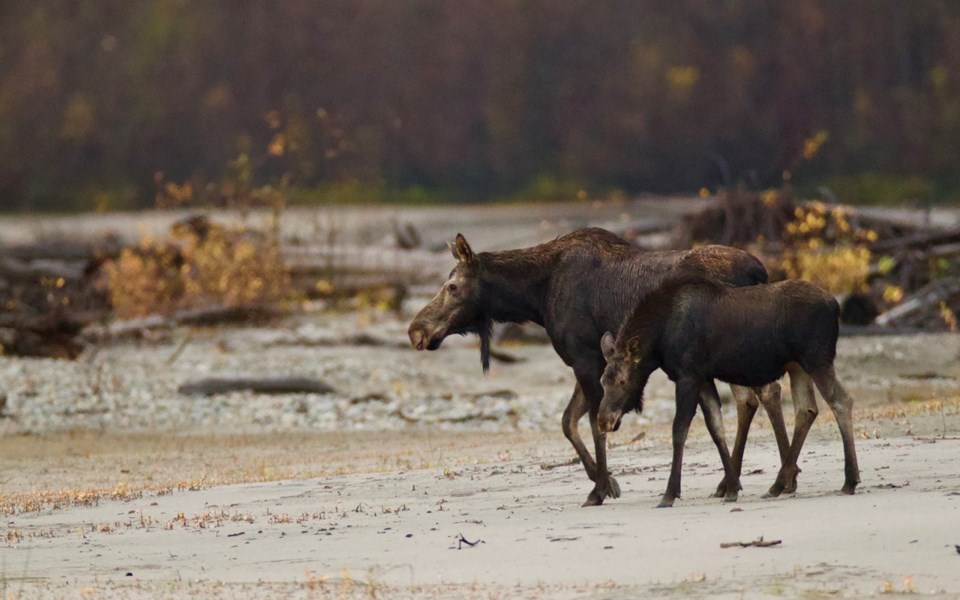The president of The Pemberton Wildlife Association (PWA) wants the province to reconsider its road access and maintenance policies on the Lillooet River Forest Service Road following the death of a pregnant cow moose.
It represents the second moose fatality on the stretch of road in the last three years.
"We are basically playing Russian roulette (by allowing) the public to drive up and down the road at any time of the day," said Allen McEwan, president of the PWA.
According to McEwan, the moose was struck at the 12.5-kilometre mark of the road currently being maintained and plowed by Innergex Renewable Energy Inc., which operates two run-of-river hydroelectric facilities in the the area.
The incident is thought to have taken place on the evening of Jan. 20 or in the early morning of Jan. 21.
The road is often used to access the Keyhole Falls hot springs, which remains open to the public in the winter, despite being closed in the summer due to wildlife issues.
McEwan believes a member of the general public was likely responsible for the accident.
He expects it was "people who were drawn to the hot spring and don't know the area (or) the rules and don't know the hazards," he said.
As part of its agreement with the province, Innergex is required to leave openings every 100 metres for animals to cross the road.
He said that that if it was only industry accessing the road then that might be enough. "If it was just industry—if there were two or three guys who were well aware of the hazards—then their efforts would have been quite sufficient," said McEwan.
Pieces of a vehicle and a broken headlight were found at the scene of the incident, said McEwan, who is in close contact with the Conservation Officer Service (COS) and Innergex.
After the dead moose was discovered, conservation officers retrieved the animal and performed a necropsy that found that the moose was stuck in the hind quarters by the vehicle, he added.
For McEwan, the incident highlights the precarious nature of the moose population, and underlines the risks of allowing public access on the road.
(He noted that Innergex has independently asked the Ministry of Forests, Lands, and Natural Resources to close the gate to the public and was turned down.)
The loss of a pregnant moose is particularly detrimental to the population, he added.
"Every time you lose an animal, particularly a breeding female, it's a really significant loss," he said. "We lost two moose that day—and we potentially lost all of the calves she could have had in her lifespan."
The COS is urging the public to come forward if they know anything about what happened.
The person that hit the moose has NOT come forward," wrote Tim Schumacher, the COS officer who investigated the incident, in an email. "The Wildlife Act requires that you immediately report the incident to the Conservation Officer Service, should you accidently kill or wound an animal without lawful authority.
"I'd like to see whoever is responsible for the death of this poor moose to come forward and tell us exactly what happened so that we can make sure it never happens again," said McEwan.
You can report to the Conservation Officer Service anonymously online (forms.gov.bc.ca/environment/rapp/), or contact the conservation officer 24-hour hotline to report a violation at 1-877-952-7277, or #7277 on the TELUS Mobility Network.




